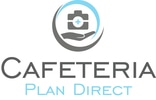|
New guidance from the IRS explains the consequences when an employer does not establish a health insurance plan for its own employees, but instead chooses to reimburse those employees for some or all of the premiums they pay for individual health insurance, either inside or outside the Health Insurance Marketplace (Exchange).
Such arrangements are described as "employer payment plans," which are considered group health plans subject to the Affordable Care Act's market reforms (including the annual dollar limit prohibition and preventive services requirements). Employer payment plans also include arrangements under which an employer uses its funds to directly pay the premium for an individual health insurance policy covering an employee. The term generally does not include arrangements under which an employee may choose either cash or an after-tax amount to be applied toward health coverage. Consistent with prior FAQs, the new guidance confirms that employer payment plans cannot be integrated with individual policies to satisfy the Affordable Care Act market reforms. Accordingly, such arrangements fail to satisfy the market reforms and may be subject to a $100 per day excise tax per applicable employee ($36,500 per year, per employee) under the federal tax code.
0 Comments
|
Small Business blog
Archives
June 2023
Categories |

 RSS Feed
RSS Feed
